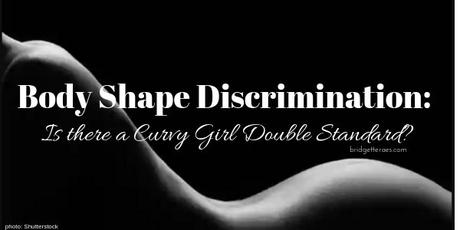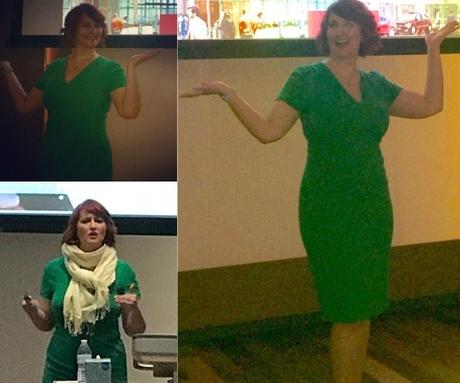
When my book came out in 2008, I had the great opportunity to go out on the road to do live television segments. Not only did it enable me to promote my book, I made money doing it because the segments were sponsored and I also got to build my media reel and gain television experience. Over the course of two years, I did about 100 live television appearances and flew all over the country often taking about 30 flights during a month that I toured.
Prior to going on the road to do this type of live television work, the company that produced these tours would train the talent to make sure we were ready for anything that could come while working on live TV. The joke was you weren't considered trained until you cried. I cried...in private. While it sounds harsh, I have always been grateful for going through this. Not only did it make me ready for anything that could happen on live television, it made me more resilient and able to stay focused and compartmentalize when things would go astray. I have relied on this training not just in television but also in public speaking and in life. I know how to keep cool under pressure.
Flash forward over a decade later to a recent experience that made me grateful for the level of training I have under my belt when, minutes before I was to walk up on stage to speak to an audience of women about image in their workplace, I was told that my dress was too tight, I was showing too much cleavage and I needed to put a scarf on to cover my chest. Stymied by the request, because I knew my dress was fine, and angered that the request did not come directly from the person who was in charge of the event, but told to me through my colleague and co-presenter, I begrudgingly grabbed a scarf, wound it around my neck, compartmentalized and carried on while secretly seething in a locked away part of my brain.
In addition to being angry about the request, I was embarrassed, uncomfortable and felt dismissed. The person in charge of the event had barely made an effort to speak to me in general and when she found an issue with what I was wearing, didn't come to me directly and express her thoughts. Instead, she sent my colleague to do the dirty work. While I still would have questioned the request had she come to me directly, I would have had a lot more respect for her if she had the decency to tell me her concerns herself. Instead, I was "handled."
I am a veteran of public speaking. I have spoken to all types of audiences and always temper what I wear based on whom I am speaking to. Additionally, working with clients who do a lot more public speaking than I do, we often earmark the certain outfits for their finance speaking clients or their creative speaking bookings, for example, knowing full well that what would fly with one audience might not work with another. Doing this is a courtesy, not a requirement, as speakers are not employees of the companies and are, therefore, not required to follow company dress codes to the letter. It's just a smart practice, not to mention respectful, to present yourself in a way that is most relatable to the audience.
Knowing the company where I was speaking has a more conservative dress code, I was mindful to attire myself more conservatively. I wore pantyhose (which I hate), because it is a requirement of the company when legs are exposed and chose a bright green sheath from L.K. Bennett, a British company known for designing clothing for professional women.
It was a long day of giving multiple presentations and when I arrived home that night, I exploded all over my husband. I needed to more fully process what had happened and he was the unfortunate victim. Despite the fact that I felt fine with what I chose to wear, it started to make me question myself. Did I miss something? Did I wear the wrong thing? What exactly was wrong with the choice I made? These were answers my husband couldn't give me, so I texted photos of what I wore to two of my clients, Ms. Chic and Mrs. Refined, to give me honest feedback. Ms. Chic works in conservative finance and Mrs. Refined has a conservative dress code working in Washington D.C.. I have known both these women long enough to know they wouldn't just tell me what I wanted to hear. I felt a sense of relief when they both were confused and unsure about what exactly the problem was.

The dress was fine, but my body wasn't?
As I continued to reflect on what happened, I started to wonder if it wasn't the dress, but my body that was the problem. Being a naturally curvy girl, even at my smallest size, I have hips and a very large chest. No matter what I wear, my body naturally fills it out, and then some. To me, this begged the question, if a person is dressed appropriately, but has a naturally voluptuous or curvy figure, should they feel it is their responsibility to cover up these curves if it is naturally how they are built?
I took to the internet to do some research to see if curvy body discrimination actually exists. I found this Huffington Post article that cited a 2010 controversy with a Lane Bryant lingerie ad that was only allowed to air after 9pm because it was considered too sexual while a Victoria's Secret ad showing similar lingerie could be aired at earlier time slots. Even the sexy Victoria's Secret fashion show has been aired at primetime. Apparently, simply because the Lane Bryant ad showed a woman who was fleshier and curvier, it was considered too sexy for primetime. The article goes on to talk about a curvier woman getting called to HR for looking inappropriate, too sexy and vulgar while wearing the same thing her skinner and less curvy counterparts were acceptably wearing.
Being curvy at whatever size I am (right now I am a size 10/12), I get it, curvy bodies can more easily read as sexy. Having been this way since hitting puberty, I have been mindful of how my body can look or come across. Yet, at what point does the line get drawn? It's not like I walked into this speaking event dressed inappropriately. I wore a knee length sheath dress that wasn't too low cut with sleeves. Did it show off my curves? Yes. Should that be considered a problem? I'm not so sure.
I then found another article that wrote about a curvy woman who got called out at work for wearing a turtleneck and was even told she couldn't wear heels. Basically, the woman in the article was called out for dressing her God-given body and the article questioned if a woman with a smaller bust or slimmer hips would have suffered the same fate in the same clothes?
As I say when I speak about professional image, it's about dressing within the parameters of what is acceptable at your workplace. So, understand, my beef with this whole thing is not me implying that a woman should be allowed to come to a corporate workplace wearing a plunging top. Where I take issue is when a woman follows proper dress code protocol and then gets called out just for being curvy.
As my mind continued to think about what happened to me, I started to feel the need to justify my body. "But I work out 6-7 days a week! Even when I am slim, I look this way! I eat well! I am in perfect health!" These were the thoughts that swirled around in my head, which only got me angrier. I felt as if, because my body looks this way, I needed to somehow justify it as it not being my fault. "Screw that," I thought! I owed no one an explanation and I certainly wasn't required to pacify their impression of my body.
This left me with a few questions: Should it be appropriate if a woman is following proper guidelines for dress, to be called out or made to feel their bodies are too revealing if it is just naturally how they are built? Should someone who is curvy be forced to "cover up" or left to feel like something is wrong with them because their body doesn't comply with being a more naturally conservative body shape? Should a woman be forced to wear less body conforming things which will only look too big, shapeless and ill-fitting? Is this really the responsibility of the naturally voluptuous? And what are we as women doing to each other when we can't embrace that even with diet, exercise and healthy living we can't all look the same?
You see, what bothered me about this most of all was it happened amongst women and this feeling that it was my body, not the dress that caused discomfort. The over-arching feeling I got from all of this was shame. I felt this, you're not slim enough to be this comfortable with yourself shame, like, instead of being okay with body, I should be flogging and starving myself, spending countless hours at the gym or hiding my body under layers of clothing. What right do I have to be okay with myself? Certainly, my curves don't give me the right to do that.
Now truth be told, because nobody would actually talk directly to me at this event, I am left with more questions than answers. Quite frankly, I don't even know if the person who called out what I was wearing even bothered to take the time to think about what bothered her so much about my outfit. Likely, all she saw was a voluptuous body in a sheath dress. I don't know and at this point, I really don't care.
In the end, what happened to me didn't cause me to become more shameful of my body. In fact, it had the complete opposite effect. I began to notice where I have dressed to deny how my body naturally is built and have now chosen to embrace my curves even more. I now find it hard to believe how strongly I have fought against what is naturally mine. They say the best defense is a good offense. So look out world, me and my chunky thighs and juicy size G breasts are out and proud.

